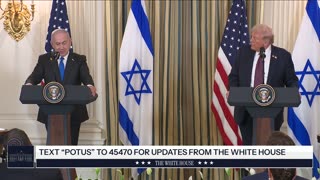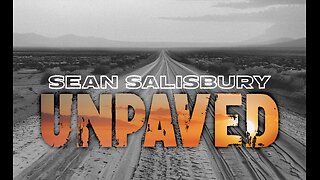Premium Only Content

Episode 3211: Discernment of Spirits (Diakrisis)
www.catholic-reboot.com
Nightly Zoom Coordinates for Rosary:
Meeting ID: 865 8978 0399
Passcode: Wjjv4960!
Speak Lord for your Servant is Listening
Book Recommendation of the Day
The Discernment of Spirits: An Ignatian Guide for Everyday Living by Fr. Timothy M. Gallagher, O.M.V.
• Although more Ignatian than monastic desert tradition, Fr. Gallagher gives very clear guidance on distinguishing spirits (true vs. false inspiration), testing motives, and living spiritually discerning lives.
• Strengths: very practical, with exercises; good for lay people, pastors, spiritual directors.
I want to share a word and theory of mine in this modern educational state that we are living where a significant amount of knowledge has been corrupted and replaced with modern sensibilities instead of truth or true knowledge. We are living in a time where you must become a An autodidact is a person who is self-taught rather than formally educated in a subject.
• The word comes from the Greek autodidaktos, meaning “self-taught” (auto = self, didaktos = taught).
• An autodidact learns through personal study, observation, practice, and experience—using books, lectures, online resources, mentors, or trial and error rather than relying primarily on structured schooling.
• Many famous thinkers, inventors, and writers have been autodidacts in some or all of their fields. Examples include Leonardo da Vinci, Abraham Lincoln, Benjamin Franklin, and Michael Faraday.
In short: an autodidact is someone who takes responsibility for their own education.
Advantages of Being an Autodidact
1. Freedom & Flexibility
o You choose what to learn, when to learn it, and how deep to go.
o No rigid curriculum — you can focus on your personal interests or career needs.
2. Self-Motivation & Discipline
o Autodidacts cultivate habits of persistence and independence.
o This discipline often carries over into other areas of life.
3. Tailored Learning Pace
o You can move quickly through material you understand or slow down for challenging areas.
o This makes learning more efficient than traditional classroom settings.
Tips for Becoming an Effective Autodidact
1. Define Your Why
• Ask: Why do I want to learn this? Career advancement? Personal interest? Spiritual growth?
• A strong reason helps sustain motivation.
2. Set Clear Goals
• Break learning into short-term goals (e.g., “read 3 chapters this week”) and long-term goals (e.g., “gain working fluency in Latin within 1 year”).
• SMART goals work well: Specific, Measurable, Achievable, Relevant, Time-bound.
3. Create a Learning Plan
• Structure your learning like a mini-curriculum:
o Core texts (books, manuals, Catechisms if studying theology, etc.)
o Supplementary material (lectures, podcasts, online courses)
o Exercises or projects to apply what you’ve learned
• Avoid jumping around randomly consistency matters.
4. Use Multiple Resources
• Don’t rely on just one book or video. Cross-check ideas.
• Blend traditional sources (classics, textbooks, encyclopedias) with modern media (podcasts, YouTube lectures, online forums).
5. Practice Active Learning
• Take notes by hand (helps memory).
• Summarize what you’ve learned in your own words.
• Teach others even explaining to a friend clarifies your understanding.
• Apply knowledge through projects, writing, or problem-solving.
6. Seek Mentors & Communities
• Join discussion groups, forums, or local clubs.
• Reach out to experts; many are willing to guide self-learners.
• Community gives accountability and prevents isolation.
7. Balance Depth & Breadth
• Go deep in your chosen subject, but also explore related areas to build context.
• Example: If studying theology, balance doctrine with Church history, philosophy, and scripture.
8. Develop Critical Thinking
• Always ask: Is this source credible?
• Be cautious with internet sources verify through trusted authors, peer-reviewed work, or primary texts.
9. Stay Consistent & Disciplined
• Schedule regular study times, even if short (15–30 minutes daily adds up).
• Small daily habits beat occasional long study binges.
10. Measure & Reflect
• Regularly check progress: “What have I mastered? What’s still fuzzy?”
• Keep a learning journal to track growth and refine your approach.
Since you often frame things spiritually:
• Study is a virtue when ordered toward truth and wisdom (St. Thomas Aquinas: Studiositas).
• Pray before study: Come, Holy Ghost, enlighten my mind.
• Offer your learning as service knowledge is perfected when used for God’s glory and the good of souls.
In short: To be an effective autodidact, you need clarity, structure, discipline, and humility knowing when to seek guidance and how to apply what you learn.
So far using the desert fathers we discussed:
So its makes good sense to discuss the discernment of spirits in this very troubling age where people are allowing their lower faculties to drive their lives.
Discernment of Spirits (Diakrisis): The Need for Spiritual Clarity
1. What the Desert Fathers Taught
The Desert Fathers were acutely aware that the battlefield of the Christian life is not only external, but also within the heart and mind. Every thought, inspiration, or feeling has to be tested. They knew well the words of St. Paul: “Even Satan disguises himself as an angel of light” (2 Corinthians 11:14).
• Abba Anthony the Great observed monks exhausting themselves in fasts, vigils, and asceticism but still falling into deception because they lacked discernment. His famous warning was:
“There are some who wear out their bodies in asceticism, but because they lack discernment, they are far from God.”
• St. John Cassian, transmitting this wisdom to the West, declared discernment (diakrisis) the “mother of virtues.” Why? Because even zeal, when misguided, can destroy. Without discernment, fasting becomes pride, silence becomes judgment, prayer becomes self-display.
The Fathers taught that discernment required:
• Humility: never trusting one’s own judgment without testing it.
• Tradition: comparing every thought to the Scriptures and the faith handed down.
• Counsel: bringing inspirations to a wise elder or confessor for testing.
Thus, discernment is not about skepticism, but about clarity. It is not mistrusting God’s voice, but ensuring that the voice we follow truly belongs to Him.
2. Why This is Relevant Today
We live in an age of immense spiritual confusion, where discernment is not only neglected but sometimes mocked. The Desert Fathers’ teaching could not be more urgent:
• Private Revelations and Devotions
Many Catholics chase after apparitions, locutions, or mystical devotions without examining them against Scripture and Tradition. Some even prefer sensational “messages” to the clear teaching of the Church.
• Feelings Mistaken for God’s Voice
Our culture prizes emotion. Many equate consolation in prayer with God’s approval, and desolation with His absence. But the Fathers knew this was dangerous demons can stir emotions, too. True discernment looks at fruits, not feelings.
• Confusion within the Church
Ambiguous teachings, doctrinal novelties, and pastoral experiments can disorient the faithful. Without discernment, Catholics may confuse novelty with truth, or obedience to trends with obedience to God.
This makes discernment educational, because most Catholics think it belongs only to mystics or theologians. In reality, it is for every soul. And it is inspirational, because it assures us that God’s guidance is real but it never contradicts His eternal truth.
3. Practical Remedies from the Fathers
The Fathers did not leave discernment vague; they gave clear remedies:
1. Test Every Thought
Measure it against Scripture, the Catechism, and the perennial teaching of the Church. If it contradicts even slightly, it is not from God.
2. Seek Humble Counsel
Do not trust yourself alone. The Fathers always had spiritual elders. Today, that means going to a confessor or faithful spiritual director. Pride isolates; humility seeks guidance.
3. Look for Fruits
Christ Himself said: “By their fruits you will know them.” (Matthew 7:16). True inspirations bear humility, charity, peace, and obedience. False inspirations breed pride, disturbance, confusion, and rebellion.
4. Cling to Prayer and the Sacraments
The Eucharist and Confession are the surest way to keep clarity. Demons cannot imitate the humility of kneeling at the confessional or adoring Christ in silence. Prayer illumines; sacraments strengthen.
4. Inspirational Angle (Traditional Catholic Perspective)
From a Traditional Catholic perspective, discernment is especially critical because novelty often masquerades as renewal. The Fathers remind us that truth does not change.
• St. Paul’s exhortation is timeless: “Test everything; hold fast what is good.” (1 Thessalonians 5:21).
• The Church’s Tradition is the safeguard against deception. Any apparition, devotion, or movement that contradicts doctrine or undermines the sacraments must be rejected outright.
• The Carmelite doctors St. Teresa of Avila and St. John of the Cross carried on this patristic wisdom. Both warned that the devil can counterfeit mystical experiences, but he cannot counterfeit humility, obedience, or fidelity to the Church.
Thus discernment is not a burden but a freedom. It frees us from confusion, grounds us in truth, and gives us confidence that when we remain humble and faithful to Tradition, we will not be deceived.
5. Closing Summary
The Desert Fathers teach us that discernment of spirits is not optional it is the mother of virtues. Without it, even zeal becomes dangerous. With it, we find clarity, humility, and true holiness.
In our age of noise, novelty, and deception, their counsel is a light:
• Test every thought against Scripture and Tradition.
• Seek wise counsel instead of trusting yourself.
• Look for true fruits of humility and peace.
• Cling to the sacraments and prayer as the compass of the soul.
This is how Catholics today can navigate confusion with peace and confidence, hearing the true voice of God amid the noise of the world.
As St. Anthony himself said:
“A time is coming when men will go mad, and when they see someone who is not mad, they will attack him, saying: ‘You are mad, you are not like us.’”
That time is here. Discernment humble, tested, rooted in Tradition is our safeguard.
Epistle – Ecclus 24:23–31
"As the vine I have brought forth a pleasant odour: and my flowers are the fruit of honour and riches. I am the mother of fair love, and of fear, and of knowledge, and of holy hope. In me is all grace of the way and of the truth, in me is all hope of life and of virtue... They that explain me shall have life everlasting."
Reflection on the Epistle
In this passage, Holy Church applies the words of Wisdom to Our Lady. She is the living Ark of the Covenant, the Mother of fair love, of fear of the Lord, of holy knowledge, and of hope. Through her, Christ entered the world, and in her we find the vessel of grace and virtue.
This text teaches us that devotion to Mary is not an optional piety but central to salvation history. To ignore her is to ignore the very dwelling place of Divine Wisdom. Those who “explain” her who preach her role, honor her name, and imitate her virtues are promised life everlasting.
For traditional Catholics, this Epistle is a call to reclaim Marian devotion in its fullness. In many modern parishes, Mary is often reduced to a sentimental figure, stripped of her role as Mediatrix and Queen. But Scripture itself declares her the Mother of holy hope, the treasury of grace. The Holy Name of Mary is therefore not just sweet on our lips but powerful in the spiritual battle against sin and error.
Gospel – Luke 1:26–38
"And the angel being come in, said unto her: Hail, full of grace, the Lord is with thee: blessed art thou among women... And Mary said: Behold the handmaid of the Lord; be it done to me according to thy word."
Reflection on the Gospel
This is the most pivotal moment in human history: the Incarnation of the Word. At the angel’s greeting, Mary is revealed as “full of grace,” chosen to bear the Son of God. Her “Fiat” her yes undoes Eve’s no. Through her obedience, the promise made to Abraham and foretold by the prophets is fulfilled.
From a traditional perspective, this Gospel underscores both Mary’s humility and her exalted dignity. She is the handmaid of the Lord, yet at the same time, Queen of Heaven. Her yes was not passive submission but an active, courageous consent, given in perfect freedom. She represents the model disciple: humble before God, yet courageous in embracing His will.
For us, Mary’s fiat becomes the pattern of our own lives. We must echo her words daily: “Be it done unto me according to Thy word.” To live under her name is to live in obedience, humility, and total surrender to God’s plan, no matter the cost.
Feast of the Most Holy Name of Mary
The feast recalls the power of invoking Mary’s holy name. After the Christian victory at Vienna, Pope Innocent XI extended the feast to the whole Church as a sign of thanksgiving. St. Bernard of Clairvaux once said: “In dangers, in perplexities, in doubtful cases, think of Mary, call upon Mary... With her for your guide, you shall not go astray.”
Her name is not empty it carries with it the power of her maternal intercession. To speak her name with faith is to call upon the one who crushed the serpent’s head, the one who bore the Savior, and the one who continues to guide and protect the Church.
________________________________________
Application for Today
• Reclaim Marian devotion: Honor her name daily in prayer; teach children the power of calling on Mary.
• Imitate her fiat: Say yes to God in both small and great matters; be humble yet courageous.
• Trust her intercession: Invoke Mary in times of trial, temptation, and persecution; she will never abandon her children.
• Proclaim her role: Do not be silent in defending Marian dogmas and devotion; as Ecclesiasticus reminds us, “They that explain me shall have life everlasting.”
Conclusionary Prayer
O God, who willed that Thy Son should take flesh in the womb of the Blessed Virgin Mary, grant that we who honor her holy name may ever find her protection in life and her intercession at the hour of death. May we imitate her fiat, rejoice in her virtues, and call upon her name with confidence until we are led into the eternal kingdom of her Son.
Most Holy Name of Mary, pray for us.
Sacred Heart of Jesus, have mercy on us.
Immaculate Heart of Mary, intercede for us.
Episode Theme:
On the Feast of the Most Holy Name of Mary, the Church teaches us that she is the dwelling of Wisdom and the handmaid of the Lord. In her fiat, she opened the way to our salvation; in her name, we find strength, hope, and grace.
-
 DVR
DVR
The Trish Regan Show
1 hour agoBREAKING: NFL Picks Anti-Trump Rapper Bad Bunny for Super Bowl—Risking MASSIVE Fan Boycott!
9.97K5 -
 45:18
45:18
Stephen Gardner
2 hours ago🚨EXPOSED: Real reason Trump preparing for war - Tulsi Gabbard WARNS Trump!!
11.8K33 -
 4:23:04
4:23:04
Right Side Broadcasting Network
8 hours agoLIVE REPLAY: President Trump Participates in a Press Conference With Prime Minister Netanyahu - 9/29/25
91.6K39 -
 1:09:19
1:09:19
The White House
5 hours agoPresident Trump Participates in a Bilateral Meeting with the Prime Minister of the State of Israel
26.2K33 -
 1:25:35
1:25:35
Russell Brand
4 hours agoMichigan Church Shooting Sparks Trump Warning Of ‘TARGETED ATTACK On Christians’ - SF641
170K47 -
 1:59:24
1:59:24
The Charlie Kirk Show
4 hours agoRemembering Charlie's Martyrdom and Continuing His Revival | Driscoll, McPherson | 9.29.2025
189K54 -
 1:34:24
1:34:24
Sean Unpaved
4 hours agoEuropeans Too Good, Lamar's Limp-Off, & the MLB's Playoff Party: Weekend Sports Review
39.7K4 -
 1:15:02
1:15:02
Mark Kaye
5 hours ago🔴 TRUMP Furious Over Bad Bunny Super Bowl Halftime Show
42.6K6 -
 46:58
46:58
MattMorseTV
5 hours ago $11.20 earned🔴COURT DATE for Kirk's ASSASSIN.🔴
66.9K33 -
 2:11:40
2:11:40
Nerdrotic
5 hours ago $4.85 earnedOne Woke After Another | JK Rowling NUKES Emma Watson - Nerdrotic Nooner 520
64.8K8